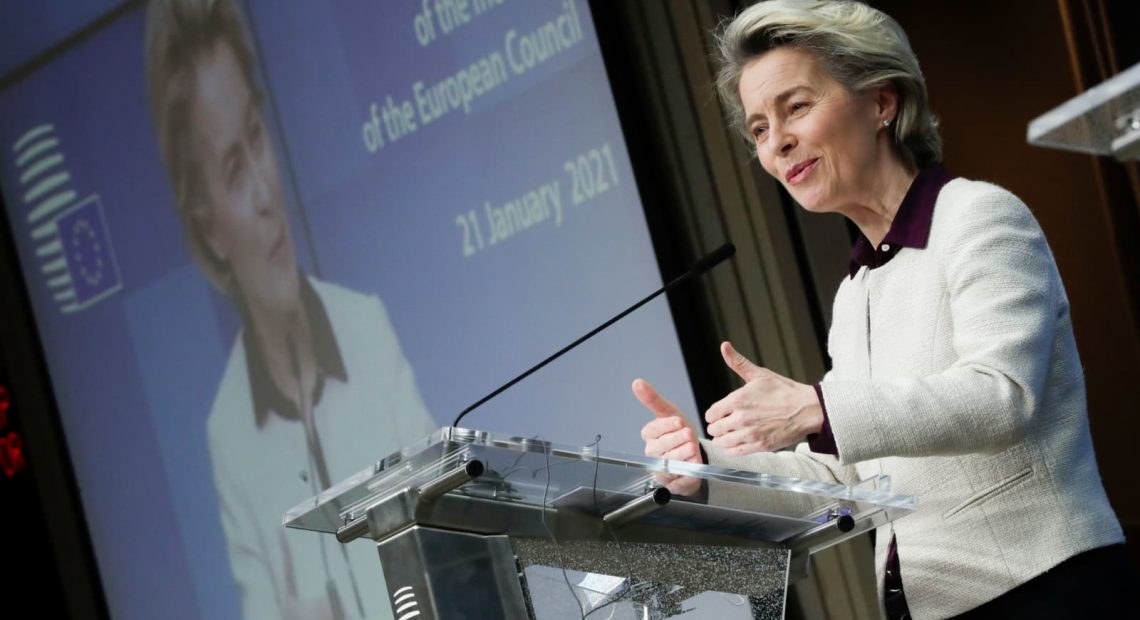express– The British-Swedish producer will deliver about 76 million out of a planned 180 million vaccine doses, according to data based on delivery projections for one member state seen by Bloomberg.
AstraZeneca had warned of a cut in supplies last month due to problems with the procurements of vaccine components for EU production sites.
The pharmaceutical company promised the bloc it would make up with more doses delivered in the second quarter of the year taken from other sites including those in the US.
But according to a Bloomberg source, that promise seems set to be broken.
Sweden’s vaccine coordinator, Richard Bergstrom, said in an interview with TV4: “We have found 75 million doses for the second quarter that were supposed to come from the UK, the US and to some extent India.
“Now we have just been told that the company won’t be able to get those doses as there are export bans from the US and India, and contractual obstacles to sending doses from the UK.”
Poland’s prime minister’s top aide Michal Dworczyk announced today that AstraZeneca will reduce the number of COVID-19 vaccine doses delivered to his country by 550,000 in March.
As in other European Union countries, Poland’s vaccination programme has been hampered by delays in deliveries from producers.
The country of 38 million has administered over four million shots of vaccine.
AstraZeneca cut its supply forecast of COVID-19 vaccines to the European Union in the first quarter to about 30 million doses, a third of its contractual obligations and a 25 percent drop from pledges made last month, according to another document seen by Reuters.
The shortfall is a further blow to EU’s vaccination plans already being hampered by repeated delays in supply and a slow rollout in some nations.
The AstraZeneca document, shared with EU officials and dated March 10, shows that the company now expects to deliver 30.1 million doses by the end of March, and another 20 million in April.
On February 25, AstraZeneca boss Pascal Soriot told the European Parliament that the company would try to deliver 40 million doses by the end of March.
The document shows that on February 24, the Anglo-Swedish company had estimated a supply of only 34 million doses to the EU for the January to March period, well below its contracted target of 90 million doses.
The new cut follows a decision last week by Italy and the European Commission to block a shipment of AstraZeneca vaccines from Italy to Australia, in the first application of an EU mechanism that allows the bloc to refuse export requests from vaccine makers that do not comply with EU supply contracts.
The United States, from where AstraZeneca expected to partly supply the EU market, told the EU that it would not export AstraZeneca shots in the near future.
EU industry commissioner Thierry Breton lashed out against the vaccine producer on Twitter late on Thursday.
He said: “I see efforts, but not ‘best efforts’.
“That’s not good enough yet for AstraZeneca to meet its Q1 obligations.
“It’s time for AstraZeneca’s Board to exercise its fiduciary responsibility and now do what it takes to fulfil AZ’s commitments.”
The AstraZeneca document also shows that the company expects to deliver about 20 million doses to the EU in April, more than half of that in the last week. It includes no forecasts for May or June
AstraZeneca has committed to supplying the 27-nation bloc with 180 million doses between April and June.
But EU countries since February have updated their vaccination plans to include only half of the contracted doses after AstraZeneca told them it was facing difficulties.
Germany, the largest country in the bloc, is expected to receive 19 percent of the AstraZeneca supplies to the EU between next week and the end of April, or a total of about 6 million doses, including over 2 million in the last week of the month, the document shows.
France should receive nearly 15 percent of the total, or about 4.7 million shots. Italy, with almost 14 percent of the overall expected supplies, is to get 4.4 million by the end of April, the document shows.
A spokesman for AstraZeneca declined to comment on Friday.




